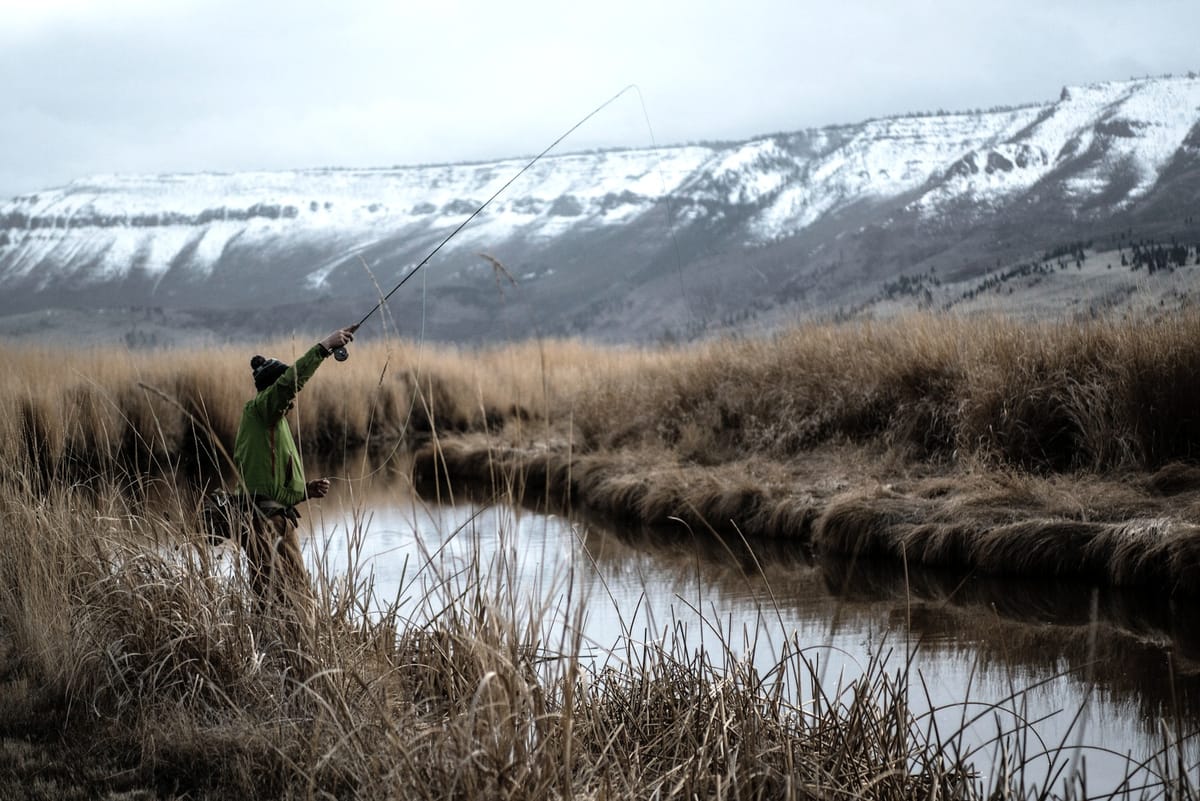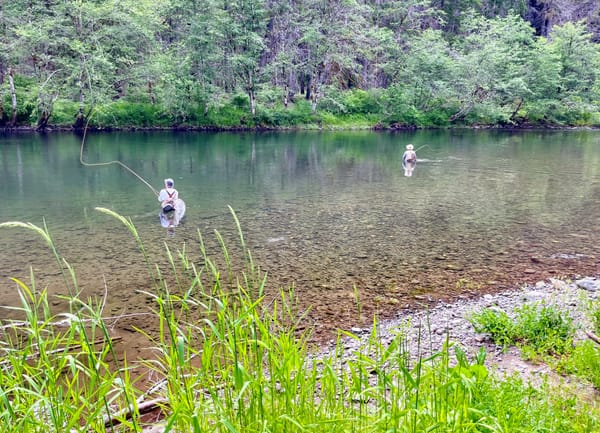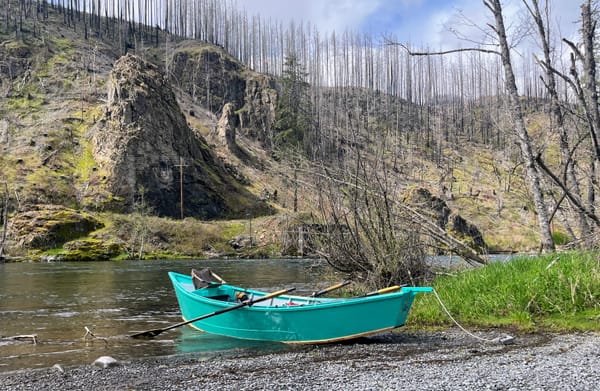Five reasons to start fly fishing
Nobody fly fishes because it’s easy. So why do they do it? Here are five reasons why I fly fish, along with two anti-reasons.

Let's get the (perhaps) obvious out of the way: Fly fishing is harder than pretty much every other type of fishing.
OK, maybe tickling fish, or noodling (catching them by hand) is harder. (You'll have to ask this old-timer in Alabama, I have no experience with that)
But to fly fish, first off you'll need to understand the entire host of arcane specifications surrounding lines and leaders and matching fly sizes up to balance your setup.
Then, you'll have to understand how to cast it all effectively. A decent cast will help avoid wind knots and tangles. It'll let you approach the fish in a way that's not going to spook them.
To say nothing of managing your fly when it's on the water. For a dry fly, you'll need to cast and mend to avoid drag. For a nymph, you want to avoid drag through subsurface currents. To swing a wet fly, you'll use line tension to create drag, where in other methods you want to avoid it.
And this is leaving off the actual setting of the hook, and the playing and landing of the fish.
The gift of a challenge
The technical aspects of fly fishing are challenging.
But fly fishing's steep technical learning curve is a gift.
It allows us to consider the other, adjacent benefits for participation while we gain experience with the basics.
Fly fishing's steep technical learning curve is a gift. It allows us to consider its adjacent benefits while we gain experience with the basics.
I fly fish for a lot of different reasons. Here are a few of the most powerful.
I fish to experience:
There's also stuff I've found I'm not as interested in, or aspects of the sport that don't appeal to me.
I don't fish for:
So let's dig into these, one by one.
Observation
Like many, I spend a lot of my life in front of a computer. It’s not always pleasant. When I think about hobbies, stepping away from a screen is a big deal.
Fly fishing has helped me see the value in siting and settling and just watching things. Keeping an eye out. This is a major part of the Technique pillar, but the first rule of conscious fly fishing is don't fish.
It’s taken me a long time to figure out you need to move as slowly as you can to immerse yourself in the environment. To see what you can see. And try to see what fish see.
You'll see many kinds of creatures. As your eyes (and mind) start to develop an understanding of the layers of the aquatic environment, and adjust to the stillness, you'll see all sorts of new things. Bugs hatching. Swallows eating bugs. Osprey circling. Otters swimming. And that will all tell you about how you can fish and how you should approach that specific fishing place.
You'll see water. Fat water. Skinny water. White water. Nervous water. Transition water. All the different types of water where fish might hang out.
And once you can see the place, you can start to see like a fish, thinking about where the fish might be if they’re not rising, and how to present the fly to them. As you get even more skilled, and thinking about where fish might be, it'll become even easier to see the actual fish, despite their camouflage. This is the ultimate goal.
Your brain will start to acclimatize to all these inputs, and you'll be able to see without looking. Absorbing these inputs will become second nature.
One of the best articulations of this is in rowing a drift boat or raft. When I’m rowing, and say, a buddy is in the angler’s seat, I’m not directly fishing. But I’m planning the right course down the river, avoiding rocks, positioning the angler in the best possible place, and watching for all the other stuff at the same time. This can be a lot to manage, but you get into the flow.
And the flow is what it's all about.




